Easter Sunday, I had nowhere I needed to be, yet somehow, life placed me exactly where I was meant to be.
The traditions I grew up with — the cooking, the crowd, the comfort of knowing who’d bring what — are things I imagined I’d be orchestrating at this stage in life, but they aren’t mine to manage. It’s not how I envisioned adult life, so holidays are hard.
My daughter moved from Iowa back to California in 2017, after five years. There, she still gets to experience it all: the decor, the scent of anise, the tender texture of homemade ravioli. For her, holidays still unfold in full color, charming every sense, much like my mother’s cuddura cu l’ova she makes every Easter.
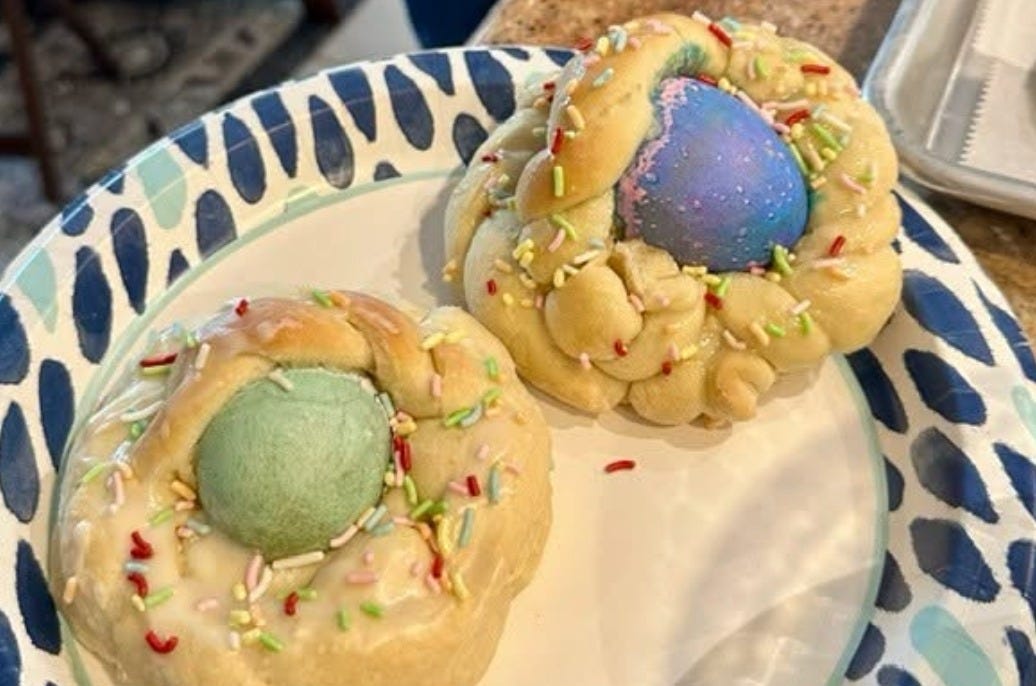
For my son, I make a point to send him north, to the farm in Bradgate, Iowa, where his father and grandfather were raised. Surrounding Fletcher with tradition and cousins during his formative years feels wildly important to me. As for myself, I usually spend these kinds of holidays in quiet ways with a walk, a reflection, maybe a good meal if I’ve planned ahead. Often its Netflix and a craft. But this Easter was different.
Wandering and wondering
This weekend, I joined fellow members of the Iowa Writers Collaborative for a retreat at Hotel Manning in Keosauqua, Iowa. Saturday evening, we gathered at the home of Paula Mohr — a nationally recognized architectural historian and preservationist — and her husband, Tom O’Donnell, a retired Iowa reporter, editor, and science writer. They live in a historic schoolhouse where Paula was raised.
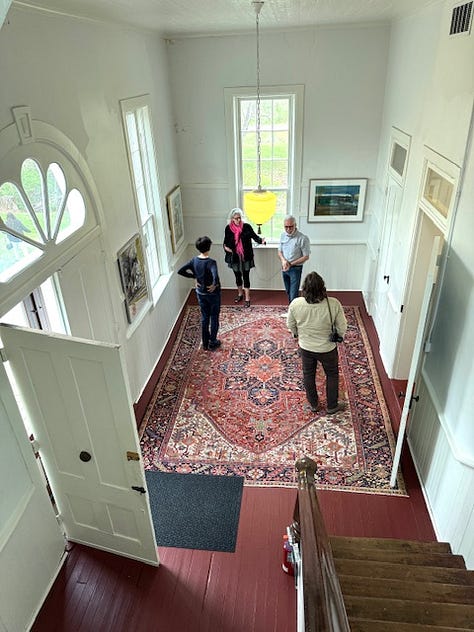
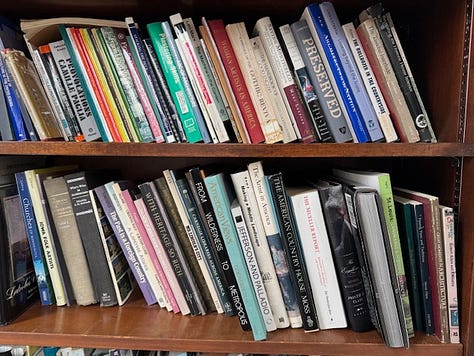
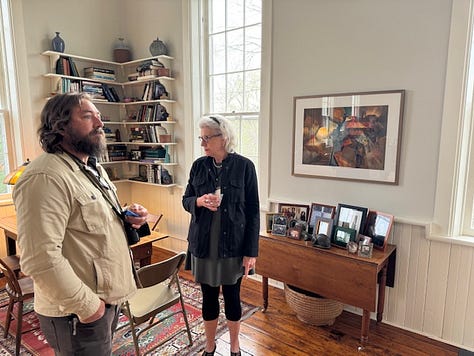
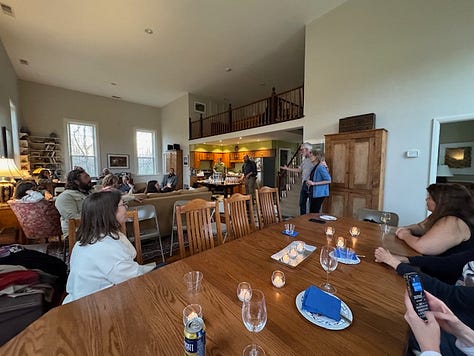
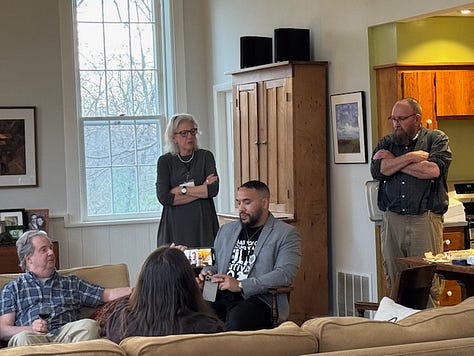
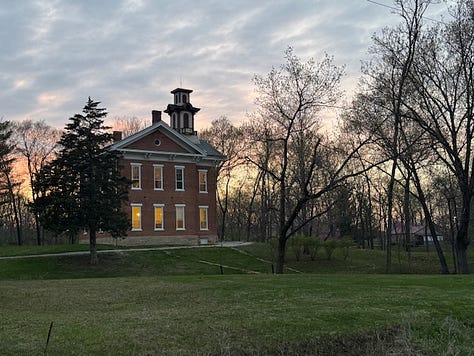
After conversation and appetizers, Tom encouraged us to take a walk across the nearby Bentonsport pedestrian bridge he helped preserve. Several of us took him up on the suggestion, crossing the bridge toward the town of Bentonsport.
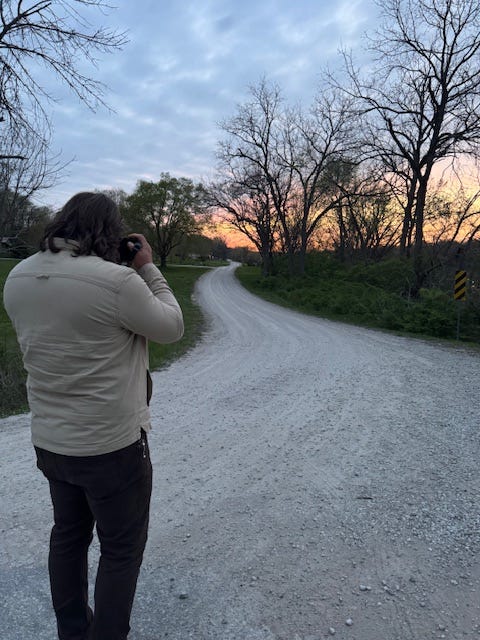
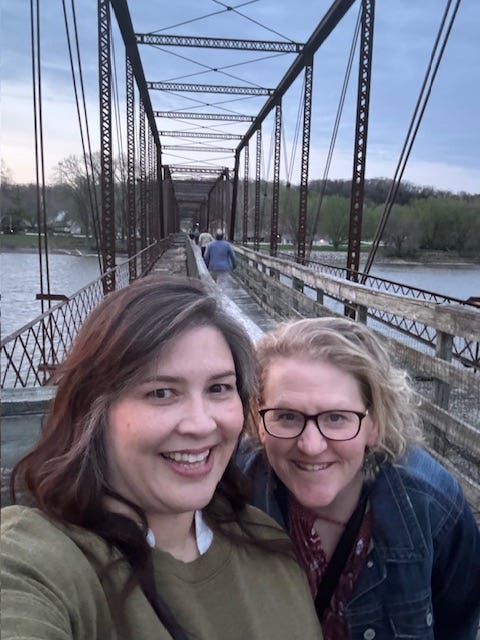
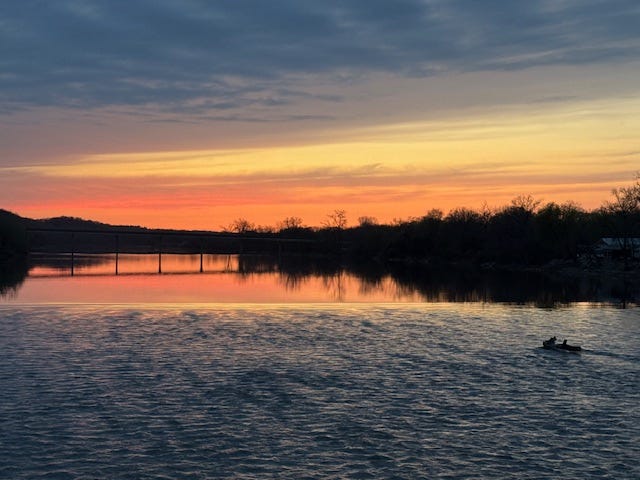
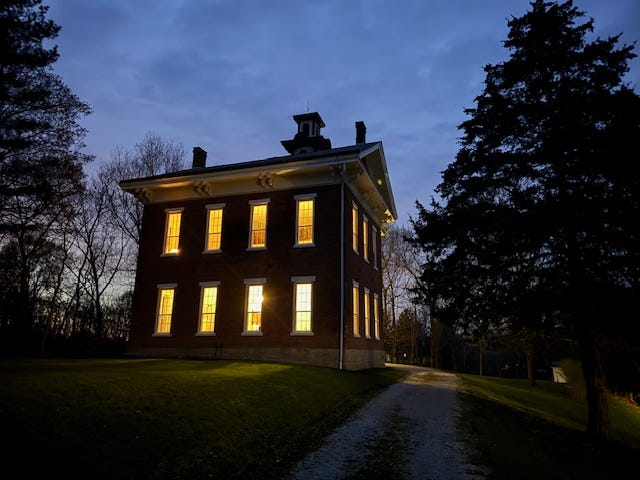
Some stopped midway on the bridge to watch the sun fall over the Des Moines River. Douglas Burns and I continued on and in to Bentonsport, wondering aloud what each building once was, or what it might hold now, while half-joking about where we’d open a newspaper or bakery. As darkness settled in, my curiosity remained unsatisfied, so I promised myself I’d return the next day.
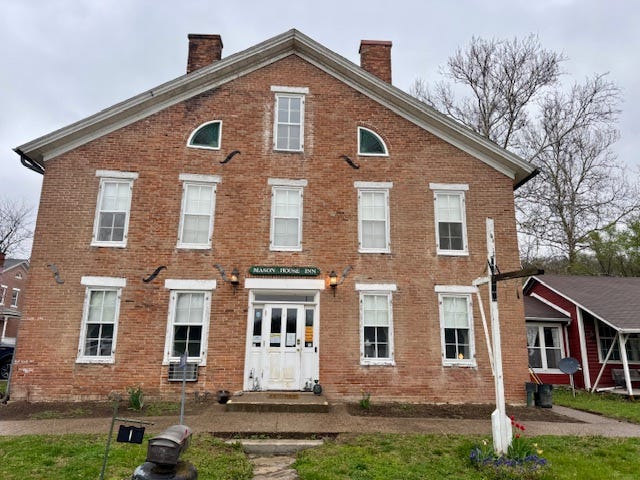
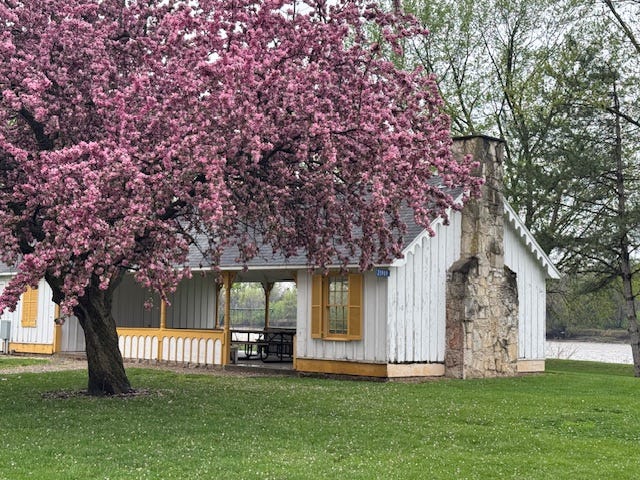
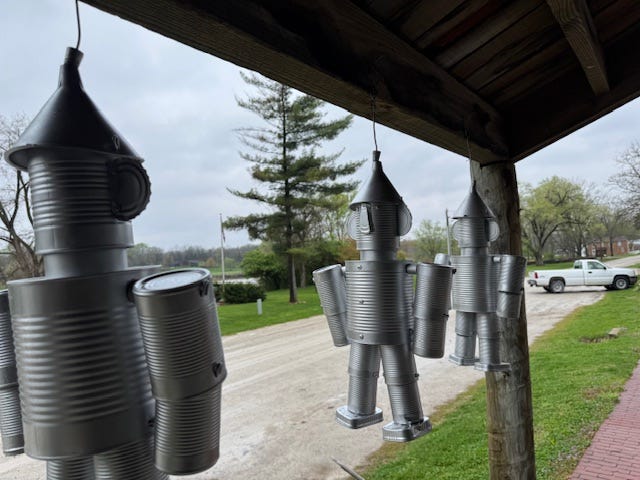

Brunch in Bentonsport
Bentonsport has a population of 40, give or take. On Easter Sunday, the population swelled by at least half. The streets were mostly still, except for the breeze and the sound of a few guests arriving to Mason House Inn, a bed-and-breakfast built in the 1840s that now hosts those who wander in, which I did. The innkeeper, Fe, who runs the place with her wife Chris, welcomed me like I was expected, and invited me to stay for brunch. Then the others arrived.
At first I thought it was a typical Easter gathering. They greeted each other with loving familiarity, dressed in their best, and looking like a tightly knit crew that’s washed hundreds of plates together. Because of how the tables were arranged, we couldn’t help but talk to each other, and I learned that the families of Anne, Ellen and Leigh were gathered this weekend to inter the ashes of their mother, Doris, who grew up in nearby Farmington.
Doris
I didn’t need to know Doris to get a sense of who she was. It was clear in the way her family moved; how they greeted each other, navigated the tight space with care, offered grace to Fe, and welcomed me, a stranger, with warmth.
As brunch unfolded, so did pieces of Doris’s story. I learned she’d spent much of her life in Ohio and enjoyed travel to Mexico, but was raised an Iowa girl. Though the relatives had come from all over — Reno, Houston, and beyond — they all carried memories of the farm, where Doris spent her formative years. One of the sisters told me their mother would be laid to rest at Sharon Presbyterian, where she married their father. Her ashes would join his, and those of their brother Neil, beside the family’s marble bench.
After brunch, I caught a glimpse of a sign for Bonaparte in my rearview mirror, so I turned around to follow it. Bonaparte has its own charm, but with nothing open on an Easter Sunday, I pulled up to the water’s edge and looked up what I could about Doris. This is my favorite line from her obituary:
“She was a woman of grace and acceptance, creativity and curiosity, a lover of beauty and nature, and a mother to whomever was in need.”
My kind of person. Then I found her book.
Never a Christmas Morning
“Never a Christmas Morning” by Doris Jury Robinson is a collection of illustrated Christmas cards and stories she painted and wrote from 2006 to 2018. She started making her own cards in 1999, but eventually added stories about her childhood in Iowa.
The title comes from an old poem:
Never a Christmas morning, never the old year ends,
but someone thinks of someone — old days, old times, old friends.
Through a series of vignettes, Doris wrote about a her one-room schoolhouse where chalk snapped in the cracks of the blackboard, and the Christmas program was the biggest event of the year:
“We scurried about, putting the last paper chain and popcorn strings on the cedar tree... The final decoration was a tinfoil-covered star cut from the cardboard of our Big Chief tablet.”
She wrote about a cedar tree she used to climb, describing how perfectly her favorite branch was positioned, hiding her from siblings and the threat of chores:
“It had a wonderful branch that grew at the perfect angle for sitting to read a book. I would put my feet on the trunk of the tree and lie back, enjoying the smell of cedar, the deep purple berries on the bow and the view. It stretched for miles and miles of cornfields and oats and beans. Above there were blue skies of fluffy white clouds, floating along making patterns on the ground.”
Doris wrote about gingerbread boys, frosted hair, and candy rolling across the floor. She even wrote a confession in a story about her first Christmas with husband Bob, using stolen gravel to secure their tree. She also reflected on life with and without him.
“I love Bob so much and we had such a great life, and we were given four loving children. Of course there were bad times, but fortune favored us and we never went to bed mad at each other even if it took all night.”
During the three-hour drive home, I kept thinking about Doris’s experience and how closely it mirrors my own. I’d woken up a little homesick, but her writing reminded me that the best part of any holiday isn’t the day itself, it’s everything leading up to it. Cooking alongside loved ones. The joy of working with your hands. The creativity it takes to make do. The quiet work of building community and family.
Doris’s family may still carry the weight of her absence, but through their kindness, I very much felt her presence. What a legacy.
Sarah Scull is a member of the Iowa Writers Collaborative, a statewide network of journalists, authors, poets, and musicians. Based in Creston, Iowa, Sarah is the writer behind The Piecemaker, where she shares her musings as a West Coast transplant, mother, and Midwest maker.
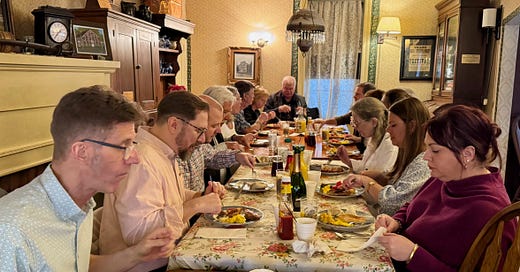



Sarah,
I can't adequately express my thankfulness for your lovely piece. You captured the soul of a woman you didn't know, but we all know and treasure so very much. I will add you story to my box of keepsakes. Leigh Robison Church ( Doris' youngest girl)
Doris was my Nana. You really captured her and the family she built beautifully. Thank you ❤️